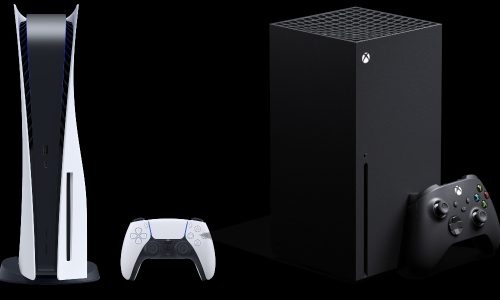The ongoing coronavirus pandemic has swirled up storms of trouble all across the consumer electronics landscape, but integrators may not have considered how much of an impact the virus would have on the still burgeoning video game industry. Global tech market advisory firm, ABI Research, forecasts that 40 million console units will ship in 2020, a 6% increase from 2019.
Total game console unit shipments declined in 2019 as many gamers opted to wait for the launch of next-generation consoles by Sony and Microsoft, both of which are now right around the corner with expected launch dates of November 12 and November 10 respectively. Pre-orders for these consoles have also positively impacted the industry.
The pandemic lent a hand in raising the gaming console market to new heights, thanks to millions of consumers being forced to stay home and rely on digital game downloads and streaming media. As business operations resumed back to normal in the second quarter of 2020, game console makers reported higher unit shipments.
“In addition to increasing demand in gaming, long-awaited next-generation consoles are targeting launch in November 2020, which will further drive the game console market. Although governments are reopening economies, still imposed travel restrictions can impact logistics,” says Khin Sandi Lynn, industry analyst at ABI Research.
“Game console makers need to prepare for efficient production, content creation, and distribution plans to avoid supply chain shortages, especially during the holiday season when sales will peak.”
The hype around the new gaming consoles also provides a great jumping-off point for savvy integrators, as more and more consumers will be ready and willing to buy into immersive audio products, enhanced networking solutions, and 4K TVs. Just don’t expect gaming customers to be clamoring for 8K.
While Gaming Gains, 8K TV Adoption Declines
For as many favors as the coronavirus provided the gaming industry, flat-panel manufacturers weren’t quite so fortunate. According to ABI Research, the 8K broadcasting schedule for the Olympics was providing panel manufacturers much to look forward to, but once those events were delayed the industry began to feel the impact of the pandemic.
“There had been much anticipation of 8K TV market growth given the 8K broadcast content scheduled for Summer 2020 Olympics. However, 2020 Olympics’ postponement combined with the overall economic downturn has resulted in low 8K TV unit shipments in 2020,” says Lynn.
Regardless of the challenges, flat-panel TV manufacturers are continuing to promote 8K TV as the next big thing. Several high-end manufacturers like LG and Samsung are sticking to their guns and are looking to increase sales of 8K TVs to help generate higher revenues and profit margins, while others like TCL are hoping to break into the 8K market.
Naturally, tough economic conditions have led to consumers shifting priorities away from media devices and electronics and more toward necessities, but the 8K TV market doesn’t appear ready to budge on pricing.
According to ABI’s data, highly competitive pricing is essential to boost sales, as seen with Samsung’s promotional prices for its 8K TV sets to boost sales volumes.
“Although 8K TV set price points have declined from a year ago, the cost of most 8K TV sets is still relatively high ranging from $3,500 to $30,000. High cost and lack of content will delay 8K TV set adoptions. ABI Research estimates only around 1% of worldwide flat panel TV shipments will be 8K TV sets in 2021,” adds Lynn.







